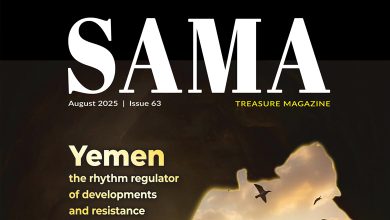Growth of non-governmental police activity

✍️ Dr. Gholamhossein Biabani; Secretary of the Iranian Association for the Development of Detective Science and Innovation Studies:
Today, in the third decade of the twenty-first century, things seem profoundly different. No one can credibly claim that the police operate with the same exclusivity as they did fifty years ago.
Moreover, it seems remarkably naïve even to consider such exclusivity as a realistic possibility for today or the future.
In the latter half of the twentieth century, policing began to transform—a “silent revolution” had taken place. Non-governmental policing grew rapidly, and the monopoly of state police over policing activities began to fade quickly.
A seemingly unstoppable wave that once moved in one direction suddenly shifted and subsided. Evidence of the restructuring of this polycentric policing was the growth of private security, which today, in most parts of the world (in terms of personnel), exceeds that of public police. For example, in South Africa, private security officers currently outnumber public police officers by nearly three to one.
Similar developments are occurring across many regions, making private security organizations a global force that must be accounted for. For instance, G4S Secure Solutions, an international security company registered on the London Stock Exchange with assets of USD 935 million, employs about 400,000 people, earns USD 3.8 billion annually, and operates in more than 100 countries.
However, the private security industry is not the only manifestation of the growing pluralism in policing. The neoliberal political-economic framework worldwide has encouraged communities to assume responsibilities traditionally associated with the police.
Individuals and neighborhoods have not only invested in private security but also mobilized themselves as street patrols and community guards. In less developed countries, traditional forms of non-governmental policing have persisted, entering formal governance structures and the academic and political discourse.
Pluralistic policing has re-emerged as a form of justice-seeking and seems likely to endure in the coming years. This reality poses a challenge for the police, raising questions about how they should define their position within this new policing landscape—where they are but one organization among many.
Should they strive to restore their monopoly over policing? And if not, what role should they define for themselves, and what responsibilities should they undertake?
These are questions that police organizations and governments worldwide must confront. Several policing reports have attempted to address them. For example, Sir Ian Blair, a former Commissioner of London’s Metropolitan Police, has raised these questions in various forums since the 1990s.
The same concerns were addressed by the Patten Commission on policing in Northern Ireland in its report to the British government, by the Law Reform Commission of Canada in its 2006 report to the Canadian Parliament, and more recently by the Dutch Police in their report titled The Evolution of Policing.







